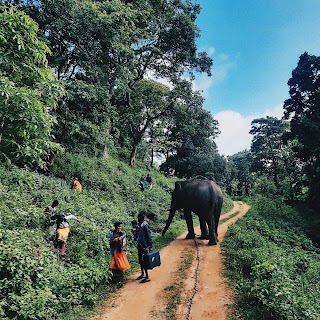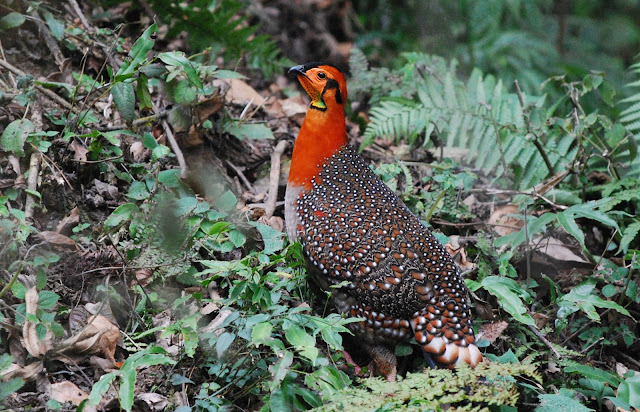Meaning-making from Trees
Meanings are derived from ontologies.
You know how we talk about humans looking up at the stars, reflecting on how they inspire thoughts and philosophies of comparative existence. That stars reminded them of the vastness of the world and the miniscule existence of their own, their perception of time and space, and their impact on other things.
Trees are similar in inspiring this sort of existential, relational meaning-making. Unlike stars, however, they exist among us, growing from the same ground we walk on, in a kind of silence on which we project a sense of wisdom - as if the silence is deliberate and a result of all the things that trees know and are waiting patiently for us to discover ourselves. Yet, like stars, they exist maximally, with a gentle largeness that overwhelms us once we notice.
 |
| My friends enjoying the view of grasslands in Kaziranga National Park, Assam, next to the tree that inspired this thought-dump. |
What sort of meaning-making do we practise in relation with trees? We often associate trees with time in relation to our own time scales; "wow, imagine the things this tree must have experienced!" Through trees we derive meanings about the space that we occupy in the much larger scale of time that they symbolise. We derive from trees inspiration for resilience, as they stand still and constant even as the world around them changes. A beautiful example is the Fig tree in Elif Shafak's touching novel, "The Island of Missing Trees" - one that "tells" the story of human conflict, war, love, and loss through time. We perceive them as witnesses of tragedies - human tragedies - ones that silently absorb the pain of conflict through time. May we as people witness war like trees do, when we can't be warriors?
I think the feature of individualism is essential to make possible this sort of existential meaning-making that is relationally developed. Would we have the same reflections if it were based on a flock of egrets - which we would have also seen and shared space with for millennia? A 100-and-something years old man from a village in Nagaland said to me that they used to practise ritualised forms of meaning-making and deriving inspiration around specific rocks in the hills surrounding the village. They symbolised resilience - "May we [the tribe] stay strong and exist forever like you do," they would declare "to" the rock. Or, this entity must receive a perceived sense of individuality - like the river - that people in the same village would allude to while wishing for a constant flow of luck and good times in their lives.
I believe these acts of relational meaning-making with trees and other entities that occupy our natural/cultural/existential ecosystems must be a part of pedagogical narratives in nature education. There is more to the human experience than knowing about trees in the ways in which they "work", or are diverse, or "help the ecosystem" - it is also in our existence to know trees. Knowing them in one of many ways is to make meaning through them and with them, and forge connections with them that are deeply personal and diverse philosophically. Engaging and dwelling in the relatedness between our selves and trees (and their selves) can play a huge role in growing love for trees - and they actually do so for most people who are already in love with trees, although often implicitly. It is from this perspective that we begin seeing other-than-human beings as "beloveds around us", as the Potawatomi botanist and author Robin Wall Kimmerer would put it.
Most of us are constantly relating and reciprocating - communicating, if you will - with trees and other beings, all the time. The glorification of "rationalism" as a way of being, however, can silence some of these perfectly human and deeply magical thoughts about ecological entities. Children, arguably the most imaginative social group among humans, are especially vulnerable against this sort of narrative. The sense of magic and creative imagination that they perceive ecological entities with is often punished, while rewarding so-called "objectivity" of "knowing how it actually works". While how something works is incredibly important and extremely wonderful to learn about, it is equally special and crucial to know something in relation to oneself and one's own existence, and build our meaning and place in the world through that.
Maybe the next time we have a thought that connects us to a tree we dwell on it, we hold it between our palms and let it stay; we accept knowing nothing about its identification and biological processes, but embrace the realisation of what it means to us and what we mean in relation to it. I believe by the end of this journey we would have learnt, loved, and known more than enough.


Comments
Post a Comment